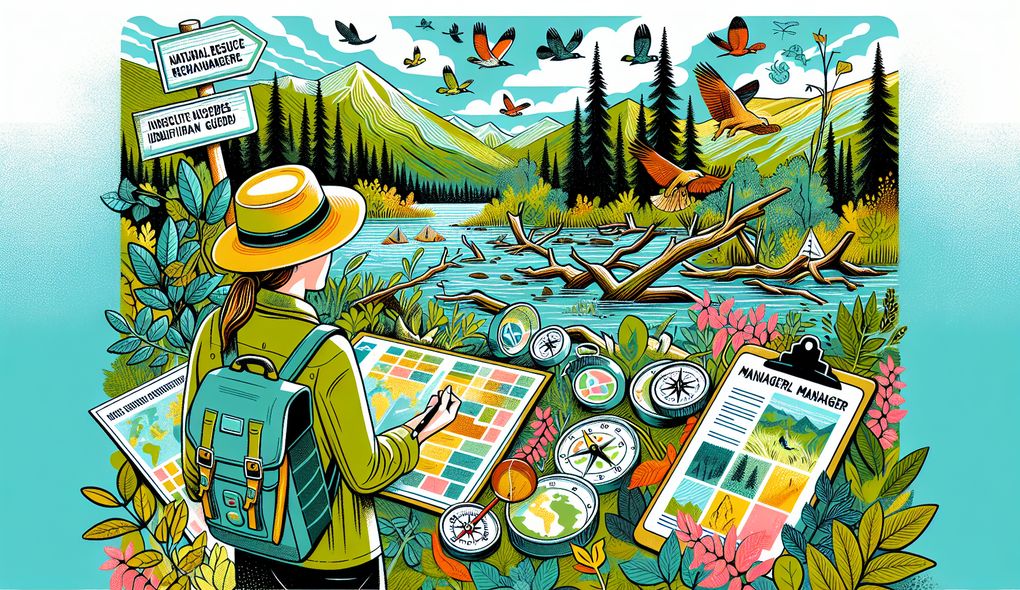How do you adapt your resource management strategies to address changing environmental conditions and emerging challenges?
SENIOR LEVEL

Sample answer to the question:
I adapt my resource management strategies by staying up-to-date with the latest environmental research and trends. I also collaborate with government agencies, community groups, and other stakeholders to effectively manage natural resources. Additionally, I implement monitoring systems to assess the sustainability of environmental practices and ensure compliance with regulations. As challenges arise, I utilize my problem-solving skills to develop innovative solutions and mitigation plans.
Here is a more solid answer:
To adapt my resource management strategies, I employ analytical thinking and decision-making by collecting and analyzing data on changing environmental conditions. This includes monitoring climate patterns, biodiversity levels, and resource availability. Based on this analysis, I develop strategic plans and project management frameworks to address emerging challenges. For example, I may create plans for habitat restoration or develop sustainable harvesting practices. Additionally, I utilize my technical proficiency in GIS to map and visualize resource distribution and identify areas that require attention. Finally, I engage in effective communication with stakeholders through regular meetings and updates to ensure their concerns and perspectives are considered in decision-making processes.
Why is this a more solid answer?
The solid answer expands on the basic answer by providing specific details about how the candidate uses their analytical thinking and decision-making skills, their strategic planning and project management abilities, and their technical proficiency in GIS. It also emphasizes the importance of effective communication and stakeholder engagement. However, it can be further improved by providing more examples or specific projects the candidate has worked on.
An example of a exceptional answer:
Adapting resource management strategies requires comprehensive analysis of changing environmental conditions and emerging challenges. I employ a multidisciplinary approach that combines ecological knowledge, strategic planning, and effective stakeholder engagement. For example, when faced with changing climate patterns, I collaborate with climate scientists to understand the implications for local ecosystems. I then develop adaptation plans that consider factors such as habitat connectivity, species migration, and water availability. These plans are integrated into broader strategic frameworks that align with regional conservation goals. To ensure successful implementation, I lead cross-functional teams and establish clear project timelines, milestones, and performance measures. Throughout the process, I engage stakeholders through regular communication channels, such as community meetings and online forums, seeking input and addressing concerns. By taking this proactive approach, I am able to address emerging challenges and adapt resource management strategies to promote long-term ecological sustainability.
Why is this an exceptional answer?
The exceptional answer goes above and beyond by providing a comprehensive and detailed approach to adapting resource management strategies. It includes specific examples of how the candidate collaborates with experts, develops adaptation plans, and engages stakeholders. The answer also demonstrates the candidate's leadership skills and their ability to align resource management strategies with broader conservation goals. Overall, it showcases the candidate's expertise in environmental science, strategic planning, and effective stakeholder engagement.
How to prepare for this question:
- Familiarize yourself with the latest environmental research and trends related to resource management. Stay informed about climate change, biodiversity loss, and sustainable practices.
- Develop your analytical thinking and decision-making skills. Practice collecting, analyzing, and interpreting data to inform resource management strategies.
- Improve your strategic planning and project management abilities. Learn about frameworks and tools used in natural resource management.
- Gain proficiency in GIS and related technologies. Familiarize yourself with mapping, data visualization, and spatial analysis techniques.
- Enhance your communication and stakeholder engagement skills. Practice presenting complex information in a clear and understandable manner, and learn techniques for effective collaboration with diverse stakeholders.
What are interviewers evaluating with this question?
- Analytical thinking and decision-making
- Strategic planning and project management
- Environmental and ecological knowledge
- Effective communication and stakeholder engagement
- Technical proficiency in GIS and related technologies

